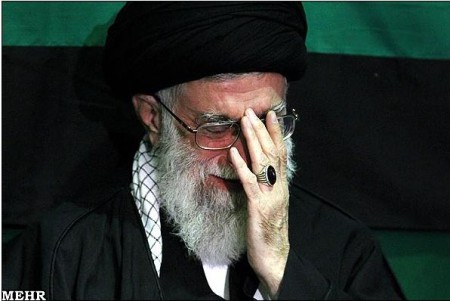Last week in Iran was dominated by two stories: Tehran’s concern over the insurgent offensive in neighboring Iraq, and the renewal of talks for a comprehensive nuclear agreement between Iran and the 5+1 Powers.
Facing a July 20 deadline for a settlement, Iran and the 5+1 (US, Britain, France, Germany, China, and Russia) convened in Vienna on Wednesday for the sixth round of discussions on the comprehensive deal.
Among the issues on the table, the most significant obstacle to agreement is the number and level of Iran’s centrifuges for uranium enrichment. At this point, neither side appears willing to move: Iran saying it must expand the stock and capabilities of its 19,000 centrifuges, to ensure self-sufficiency in uranium for civil uses; the US and European partners insisting on a reduction because of fears of an Iranian ability to “break out” within months for a militarized nuclear program.
While the talks have been insulated from the escalation of the Iraqi crisis, as well as ongoing tension over Syria, the insurgent takeover of Iraqi cities and advance on Baghdad has dominated Iranian media. Military commanders, MPs — including Speaker of Parliament Ali Larijani — and officials have accused the US of backing the Islamic State, the leading force in the insurgency. The Supreme Leader has focused on “enemy plots” to destabilize the region and undermine the “Islamic Awakening” promoted by Iran.
Iran is playing down its military support for the Iraqi Government. Officials deny that Tehran has sent troops and the commander of the elite Qods Force, General Qassem Soleimani, into Iraq, or that it has despatched SU-25 jet fighters to help Baghdad.
At the same time, Tehran is playing up a diplomatic offensive to build a front against the insurgency. It is hailing its alliance with Russia and is sending high-level officials to the Gulf States — though denying it has spoken to Saudi Arabia.
Inside Iran, the Rouhani Government continues to exercise caution. It is emphasizing the potential success of its program for economic recovery, while stepping back from any cultural and social initiatives.
The most significant initiative came from outside the Government, as MP Ali Motahari and others asked the Supreme Leader to free opposition leaders Mir Hossein Mousavi, Mehdi Karroubi, and Zahra Rahnavard. The appeal was rejected, just like former President Hashemi Rafsanjani’s approach earlier this year.
FORECAST
So far, Iran has kept its worries over Iraq — and, more importantly, its heated anti-US rhetoric — out of the nuclear talks in Vienna.
Indeed, the Iraqi crisis has again highlighted the vital possibility of a nuclear agreement as a catalyst for discussions over other issues. A settlement would ease tensions between the US and Iranian Governments — as well as Iranian-European relations — opening up multilateral consideration of political and military measures in Iraq and possibly the Syrian crisis.
However, that nuclear deal does not appear imminent, with diplomats talking at best about a last-minute breakthrough before the interim agreement expires on July 20. The most likely scenario is an extension of the interim arrangements while negotiations continue into the autumn, but this does not indicate how a resolution is possible on the centrifuge issue.
And even that extension could come under pressure: with Congressional elections approaching in the US, expect a harder line from legislators in Washington as well as lobbies and conservative think tanks. Inside Iran, the Rouhani Government will face accusations of weakness on political and military issues, even if hardliners cannot directly assail the nuclear negotiations because of the Supreme Leader’s prohibition — so far — of the criticisms.
FEATURED ANALYSES
Why a Nuclear Deal May Not Happen — 5 Points & 1 Word (“Centrifuges”)
Video Analysis: Tehran is Scared Over Iraq
Kerry Warns Tehran Over Nuclear Talks — Why?
Supreme Leader Rejects Release of Detained Opposition Leaders Mousavi & Karroubi

